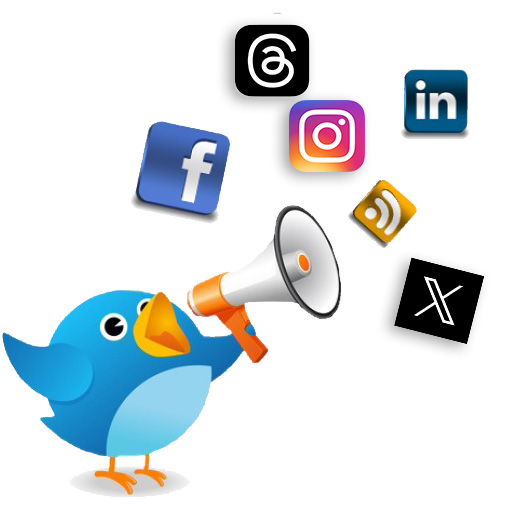4 Steps for Turning Tweets into Meets
We’ve all seen some bad actor marketing.
While postcards and emails will always have their place in our business, many actors send them without focus, purpose, or strategy (because someone told them to).
I think social marketing and networking is a worthy investment of your time and energy. Truth is, it’s now pretty much unavoidable and involuntary. Ergo, take control of what you’re doing online! Help create offline results for yourself.
Personal social media is free. It gives you instant access to VIPs (not to mention thousands of friends, family, and fans). Social is also “real.” The people you’re attempting to establish relationships with are probably representing themselves online.
So how do you turn a tweet into a meet? These steps should help.
1. Design the first impression. You only get one chance to make a first impression. Start with your channels. Are they designed? Pair authenticity and strategy. Showcase great photos, a compelling bio, and a link to learn more about you. If you don’t have a website, send audiences to IMDb or another social network. Keep in mind that mutual friends and/or amount of followers are also factors in your first impression.
Beyond your channels, it’s all about
3 Ways to Build Your Fan Base
I was reading a recent article by casting director Mark Sikes wherein he discusses “building your fan base.” In this article, he is speaking about the industry leaders (agents, casting directors, producers, etc.) who are in the position to get you working. We all have, over and over, been taught the concept of keeping in touch with industry folks and maintaining the relationships. Very few actors actually do this regularly, but we are aware that it is an important part of our day-to-day marketing efforts.
But I want to expand the conversation a bit: How do you keep in touch with your other fans? That is to say, how do you maintain your relationships with the folks that will buy tickets to your shows and show up to the movie theater? Today, I want to talk about this concept of building an audience.
Harrison Ford once said, “I’m an assistant storyteller. It’s like being a waiter or a gas station attendant, but I’m waiting on six million people a week, if I’m lucky.” This has always inspired me to remember that the people who really count are the ones who pay for a ticket to watch me perform. No wonder—Harrison is talking about six million folks per week! So, wouldn’t it
4 Ways to Utilize Ensemble-Based Marketing
I have been an actor for many, many years, but I recently came upon my nine-year anniversary as a New York actor. It was a thrilling change from my smaller town of San Diego (which is big geographically but still has that small town feel). One of the toughest things about moving to this big city was building a new community, of which I had so much in my hometown. The power of community is so valuable to actors, and most of the time we don’t even realize we have it. Most of the time, we feel like we are trudging through this business all on our own.
The idea for this article actually stems from a Facebook status I saw a few weeks ago. A very talented musical director-singer posted a request to the universe, stating he wanted theaters to elect one person to create a Facebook event for their show where everyone can “invite friends to this event,” rather than five people separately creating events. My friend cited a particular problem where he got invited to one event by two different people and got confused as to where he should RSVP.
As actors have started to become more savvy with social networking and have begun taking their marketing into their own hands, one element seems to have gone missing: Actors are no
When Did We Stop Being Artists?
I’ve been thinking a lot lately about art and expression, and some of the fears that actors have as we try to explore the things that inspire us. There so much of an emphasis on doing “good” work, so much energy put into work that can propel you “to the next level.” I’ve started wondering: When did we stop creating art because it was fun to be expressive? To tell stories? To pretend to be someone else, and show off these characters to our family and friends? Thinking back, I think everything changes when people hit that magic age of 7: the “age of reason.”
I’m at the point where many of my friends are starting to have children, and one common element you find in each parent’s home is the refrigerator filled with drawings from their child. Heck, even if you aren’t a parent, if you know children you probably have a piece of artwork hanging on your wall. Or a batch of photos from a child’s recital. Or a video from a school play. Parents and family members weep happily at the sight of a child expressing him/herself in an artistic way.
And then, at some point, this stops. Parents stop encouraging artistry. Drawings are removed from refrigerators and videos are
